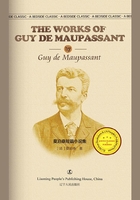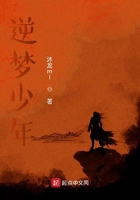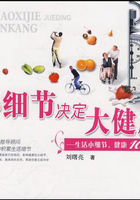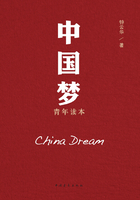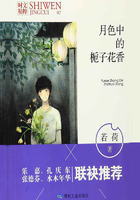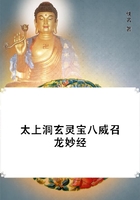Spring advanced, and Brunetti continued to measure it florally. The first lilacs appeared in the flower shops, and he took an enormous bouquet home to Paola; the little pink and yellow flowers made their full appearance in the garden across the canal, were succeeded by random daffodils, and then by ordered rows of tulips at the side of the path bordering the garden. And then one Saturday Paola commandeered him into moving the large terracotta vases from the cool, dark sottotetto where they spent the winter back on to the terrace, where they would remain until November. From the terrace, he noticed that the flower boxes on the balcony on the other side of the calle and one floor below had been planted with the red geraniums Brunetti so much disliked.
Then there was Palm Sunday, which he was aware of only when he saw people walking around with olive branches in their hands. And then Easter and explosions of flowers in the windows of Biancat, displays so excessive that Brunetti was forced to stop every evening on the way home from work to consider them.
On Easter Sunday, they had lunch with Paola's parents; this year her aunt Ugolina was also in attendance, wearing a straw hat covered with tiny paper roses that saw the light of day, perhaps, once a year. They took with them – because there was nothing to take to the Faliers that they did not already have and did not already have in a superior form – flowers. The palazzo was already filled with them, but this did not prevent the Countess from gushing over the roses as though they heralded a new species. The excess of flowers also set Chiara off into an impromptu lecture on the ecological wastefulness of hothouse flowers, a discourse she found no one willing to listen to.
The floral note was continued on an invitation Paola received to a gallery opening that was to present the work of three young artists working in glass. From what Brunetti saw from the photos in the invitation, one produced flat panels using gold leaf and coloured glass; the second made vases with lips that resembled the petals of the flowers that would be put inside; and the third used a more traditional style to create cylindrical vases with smooth lips.
The gallery was new, run by the friend of a colleague of Paola's at the university who suggested that they attend. The level of crime in Venice was as low as the waters of that year's spring tides, and so Brunetti was happy to accept; because the gallery was on Murano, he wondered if he would get to meet Ribetti and his wife: he hardly thought a gallery opening was the sort of place where he would re-encounter De Cal.
The opening was scheduled to begin at six on a Friday evening, which would allow people time to see the artists' work, have a glass of prosecco, nibble on something, and then go out to dinner or go home on time to eat. As they boarded the 41 at Fondamenta Nuove, Brunetti realized that years had passed since he had been out to Murano. He had gone there as a boy, when his father had worked in one of the factories for a time, but since then he had been there infrequently, since none of their friends lived on Murano, and he had never had reason to go there professionally.
Three or four other couples left the boat at Faro and also started down Viale Garibaldi. 'The one in red,' Paola said, moving closer to Brunetti and taking his arm in hers, 'is Professoressa Amadori.'
'And is that the Professor?' Brunetti asked, pointing with his other hand at a tall man with silver hair who walked at the side of the elderly woman in the red coat.
Paola nodded. 'Behave yourself, look attentive and inferior, and perhaps I'll introduce you to her,' she promised.
'Is she that bad?' Brunetti asked, glancing again at what appeared to be a completely ordinary woman, the sort one would see at Rialto, haggling over the price of mullet. From behind, her legs were slightly bowed, her feet stuffed into what looked like very uncomfortable shoes, or perhaps that impression resulted from her walk – tiny steps with inturned toes.
'She's worse,' Paola said. 'I've seen male students come out of their oral exams with her in tears: it's almost a point of pride with her never to be satisfied with their performance.' She paused for a moment, her attention drawn by something in a window, then turned away and continued walking. 'I've known other students who have cancelled exams, even produced doctor's certificates, once they learned that she would be on the examining committee.'
'Could it be that she's only very demanding of them?' he asked.
That stopped her in her tracks. She pulled back a step and looked him in the face. 'You have been living with me for the last twenty years, haven't you, Signore?' she asked. 'And you have heard me mention her a few times?'
'Six hundred and twenty-seven,' Brunetti said. 'If that's a few.'
'Good,' she said, taking his arm and starting to walk again. 'Then you know that it has nothing to do with being demanding, only with being a jealous bitch who doesn't want anyone, ever, to have a chance at getting anything she's got.'
'By failing students in their exams?' Brunetti asked.
'Then they can't get their degrees, which means there's no chance they can join the faculty, and because there's no chance they'll become colleagues, there's no chance they'll ever get an appointment or a promotion or a grant that she might want.'
'That's crazy,' Brunetti said.
She stopped again. 'Is this the same man who works for Vice-Questore Giuseppe Patta?' she demanded.
'That's different,' Brunetti was quick to protest.
'How?' she demanded, stopping again and no doubt unwilling to move until he answered.
'He doesn't have any power over what I do. He can't fail me in an exam.'
She looked at him as though he had started to foam at the mouth and howl. 'No power over what you do?' she asked.
Brunetti smiled and shrugged. 'All right, but he can't fail me in an exam.'
She smiled back at him and took his arm. 'Believe me about this, Guido. She's a bitch.'
'I stand warned,' he said affably. 'The Professor?'
'A marriage made in heaven,' was all she was willing to volunteer by way of information on that subject.
When they reached the canal, they turned left and then crossed Ponte Ballarin, turning right at the bottom. 'It's got to be along here somewhere,' Paola said, slowing her steps and looking into the windows of the shops and galleries they passed.
'It should be on the invitation,' Brunetti said.
'I know,' she said. 'But I forgot to bring it.'
They continued walking down the riva, attentive to the windows on their left. Past the pescheria they went, past a few more shops, some still open, some already closed. Three people emerged from a doorway in front of them and paused to light cigarettes, holding each other's drinks while they did so.
'That's got to be it,' Paola said. A man and a woman walked out, without drinks, and went off hand in hand in the opposite direction.
When they reached the doorway, two more people emerged, cigarettes already lit, and went to stand with the three other smokers, all leaning against the wall of the embankment and using it as a table for their glasses.
The door was open. Paola went in, paused just inside the threshold and looked around for someone she knew. Brunetti did the same, though with less hope of success. He saw some people he recognized, but it was in a Venetian way that he recognized them, from walking past them on the street over the course of years, perhaps decades, without ever learning who they were or what they did. He could hardly go up to the man who had lost so much of his hair and begin a conversation about that, nor could he ask the woman with the newly blonde hair why she had gained so much weight.
Through a small gap in the wall of people he saw the double row of display cases. He walked towards them, leaving Paola to find someone she knew, or meet someone new, and examined the contents of the first case, which was raised on thin legs to chest height. Upright, gold on one side, cobalt blue on the other, stood a rectangle of worked glass a little bit bigger than a copy of Espresso. The surface was textured, but in no regular, orderly way: it looked more as if someone had dragged their fingers in wet clay from bottom to top and then down again, creating shallow runnels where the light glittered and played. The next case contained another panel: though the size was the same, the texture and colours, even the colour of the gold, were entirely different, making it as unlike the first one as it was like it in size. The third case held four thick glass rectangles with alternating stripes of what appeared to be silver and gold. They were as otherworldly as the others, and quite as beautiful.
An empty glass had been left on top of the third case, and Brunetti removed it, annoyed to find it there. The almost sandy dregs of red wine clashed with the supple smoothness of the glass objects.
The next case held three of the flower-like vases on the invitation, all in the faintest of pastels. Brunetti found them far smaller than he had expected. Nor was the work as delicate: what might have been flower petals were thicker than the real thing, thicker than what he knew a good maestro could create. Another case held three more of them, though these were in stronger, darker colours. The workmanship continued to displease him, and he walked quickly past them to the next case.
These vases were cylindrical, all of them rising up to delicate lips, the sort of lips that the others should have had, Brunetti thought. The vases varied in height and in diameter, but each managed to achieve a perfect harmony between the two. The final case held objects of no definite shape: they didn't resemble anything, had no discernible use, seemed to be little more than swerves and swirls of glass, each curve blending into another of a faintly lighter or darker colour.
'Do you like them?' a young woman asked Brunetti.
He looked away from the objects in the last case, smiled, and said, 'Yes, I think I do.' He turned back to the objects and studied them, then moved to the other side of the Plexiglas case to see them from a different perspective. Now they appeared entirely different and he doubted that he would be able to recognize them from this side, though he had just studied them from the other.
When he looked up, the young woman was back, two glasses of prosecco in her hands. She offered him a glass, and he took it with a smile and a nod. Finding himself now with two glasses, he reached down and set the empty one on the floor against the wall. He took a sip of the wine. 'You like it?' she asked, leaving him in some doubt as to whether she intended the prosecco or the art.
'The wine's excellent,' he said, which was true: for this sort of show, it was good. Usually they served the sort of still red that came in large bottles, and instead of the thin glass he had in his hand, the wine was served in plastic cups.
'And those?' she asked.
'I think I think they're beautiful,' he said and took another sip.
'Only think you think?'
'Yes,' Brunetti confirmed. 'They're too unlike what I'm used to seeing in glass, so I need to think about them for a while before I decide.'
'You think about the things you see?' the woman asked, sounding not a little surprised at this. She appeared to be in her late twenties, and had a faint Roman accent and a nose that looked as if it had the same origins. Her eyes were dark and bore no trace of makeup, though her mouth had been enlarged by dark red lipstick.
'It's my job,' he said. 'I'm a policeman.' He had no idea what imp of the perverse had made him say that. Perhaps it had been the sight of the people in the room, or the presence of Professoressa Amadori and her husband, the sort of lofty academics he had suffered under for so many years at university.
He took another sip of prosecco and asked, 'What do you do?'
'I teach at the university,' she said.
Paola had never mentioned anyone like this young woman, but that did not necessarily mean anything: Paola, if she discussed her work, usually talked about books rather than about her colleagues. 'Teach what?' Brunetti asked in what he hoped was a friendly manner.
'Applied Mathematics,' she said, smiled, and added, 'and you don't have to ask. I find it interesting but few other people do.'
He believed her and felt relieved of the burden of having to feign polite interest. He gestured with his glass toward the objects in the two lines of cases. 'And these? Do you like them?'
'The rectangular ones, yes; and these,' she said, 'especially these last ones. I find them very … very peaceful, though I don't know why I say that.'
Brunetti talked with the young woman for a few minutes more, then, finding his glass empty, excused himself and went back to the bar. He searched the room for Paola and saw her on the other side, talking to someone who, had he been able to see him from the back, he might have been able to identify as Professore Amadori. Whether it was he or not, Brunetti could read Paola's expression and made his way across the room to her side.
'Ah,' she said as he came up, 'here's my husband. Guido, this is Professore Amadori, the husband of a colleague of mine.'
The professor nodded to acknowledge Brunetti but did not bother to extend his hand. 'As I was saying, Professoressa,' he went on, 'the chief burden of our society is the influx of people of other cultures. They have no understanding of our traditions, no respect for …' Brunetti sipped at his wine, playing over in his memory the smooth surfaces of the first pieces he'd seen, marvelling at how harmonious they were. The professor, when Brunetti tuned back in, had moved on to Christian values, and Brunetti's mind moved on to the second set of vases. There had been no prices, but there was sure to be a price list somewhere, placed in a discreet, dark-covered folder. The professor moved on to the Puritan ethic of work and respect for time, and Brunetti moved on to a consideration of where such a piece could be put in their house and how it could be displayed without their having to get an individual display case for it.
Like a seal coming up to a hole in the ice to take a breath, Brunetti again tuned in to the monologue and heard 'oppression of women', and quickly pulled his head back under the water.
Had the professor been a singer, he might well have performed this entire aria on one breath; certainly it had all been sung on the same note. He wondered if this man or his wife could affect Paola's career in any way, and then it occurred to him that, regardless, they could not affect his own, and so he turned to Paola and said, interrupting the professor, 'I need another drink. Would you like one?'
She smiled at him, smiled at the astonished professor, and said, 'Yes. But let me get them, Guido.' Oh, she was a sly one, his wife: a snake, a viper, a weasel.
'No, let me,' he insisted and then compromised. 'Or come with me and meet this young woman who has just been telling me the most fascinating things about algorithms and theorems.' He smiled and made a small bow to the professor, muttered a word that could have been 'fascinating', or could have been 'hallucinating', said they would just be gone a moment, and fled, pulling his wife to safety by one hand.
She tried to speak but he held up a hand to indicate that it was not necessary: 'I cannot allow the oppression of women,' Brunetti said.
Together, they went and collected fresh glasses of prosecco; he noticed that Paola drank half of hers thirstily.
He asked if she had looked at the works, then went with her as she walked around each of the cases. When she was finished, she said, 'Displaying it would be a problem, though', just as if he had asked her if they should buy one and, if so, which.
Brunetti looked around at the crowd, which had grown denser. A bearded scarecrow of a man, he saw, had been caught by Professore Amadori, who seemed to have been switched back to PLAY. A tall woman wearing a miniskirt with a fringe of glass baubles dangling from the hem walked past the professor, but his gaze remained on his listener, whose eyes, however, ached after the miniskirt.
A man and woman appeared by the first display case. They wore matching crocheted white skullcaps and ponchos made of rough wool, as though they had passed through Damascus on their way home from Machu Picchu. The man pointed at each piece in turn, and the woman fluttered her hands in praise or condemnation, Brunetti had no idea which.
When he turned back to Paola, she was gone. Instead, standing less than a metre from him and speaking to a woman with short dark hair, he saw Ribetti. He looked better than he had at their first encounter, and happier. He looked better not only because he was wearing a suit and tie and not the trousers and wrinkled jacket he had been wearing when Brunetti saw him the last time, the clothes he had been wearing when he was pushed to the ground and then detained by the police. The suit fitted him, but it seemed that the woman's company fitted him even better.
Brunetti looked down into his glass, not quite sure of the etiquette involved in a social meeting with a person he had saved from arrest. Ribetti, however, made Brunetti's reticence unnecessary for, as soon as he saw the Commissario, he said something to the woman and came across. 'Commissario, how nice to see you,' he said with what appeared to be real pleasure. Then, after a pause, 'I didn't expect to see you here.' Realizing this could be construed as doubt that a policeman could have any interest in art, he added an explanation, 'I mean on Murano, that is. Not here.' He stopped, as if aware that anything else he might say would only dig him in deeper. He glanced back at the woman and said to Brunetti, 'Come and meet my wife.'
Brunetti followed him over to the woman, who smiled at the approach of her husband. She had short hair in which Brunetti noticed quite a bit of grey. On closer inspection, he saw that she was older than her husband, perhaps by as much as ten years. 'This is the man who didn't arrest me, Assunta,' Ribetti said. He stood beside her and wrapped an arm around her shoulder.
She smiled at Brunetti and toasted him with her prosecco. 'I'm not at all sure what the protocol might be here,' she said, echoing Brunetti's concern.
Ribetti raised his glass and said, 'I think the protocol is we raise our glasses and give thanks I'm not in the slammer.' He finished what was left of his prosecco, holding the glass in the air for a moment.
'I'd like to thank you for helping Marco,' his wife said. 'I didn't know what to do, so I called Lorenzo, but I never imagined he'd involve anyone else.' Her glass remained forgotten in her hand as she spoke to Brunetti. 'In fact, I don't know what I thought he'd do. Just that he'd do something.' Her brown eyes were set under unfashionably thick eyebrows, and her nose was broad at the tip and slightly turned up, but softness had found its way into her face with her mouth, which seemed made for smiles.
'I really didn't do anything, Signora; I assure you. By the time we got there, the magistrate had already decided to release everyone. There was no way charges could have been brought against them.'
'Why is that?' she asked. 'I don't see how they could have been taken there if they weren't going to be arrested.'
Brunetti had no desire to explain the vagaries of police procedure, certainly not now, with a glass of prosecco growing warm in his hand and his wife making her way through the crowd towards him, so he said, 'No one ever made it clear what happened, so no charges were brought.' Before either of them could say anything, he sensed Paola's presence at his side and he said, 'This is my wife.' And to Paola, 'Assunta De Cal and Marco Ribetti.'
Paola smiled and said the right things about the pieces on display, then asked how it was they were at the opening. She was delighted to learn that Assunta was the daughter of the owner of the fornace where one of the artists' work had been made.
'The flat panels,' Assunta explained. 'He's a young man from here. The nephew of a woman I went to school with, as a matter of fact. That's why he used my father's fornace. She called me and asked, and I talked to the maestro and then brought Lino to talk to him, and they liked one another's work, so he commissioned the maestro to fire the pieces.'
How Venetian a solution, Brunetti thought: someone knew someone who had gone to school with someone, and so the deal was done.
'Couldn't he do the work himself?' Paola asked. When Assunta and Ribetti seemed not to understand, she pointed to the pieces in the display cabinet and said, 'The artist. Couldn't he make them himself?'
Assunta held up a hand as if to ward away evil. 'No, never. It takes years, decades, before you can fire something. You have to know about the composition of the glass, how to prepare the miscela to get the colours you want, what sort of furnace you're working with, who your servente is, how fast and how reliable he is with the things you have to do for that particular piece.' She stopped as if suddenly exhausted by this long list. 'And that's just the beginning,' she added, and her listeners laughed.
'You sound like you could do it yourself,' Paola said with every sign of respect.
'Oh, no,' Assunta said, 'I'm too small. You really do have to be a man, well, be as strong as a man.' Here she held up her hand, which was little larger than a child's. 'And I'm not that, as you can see.' She let her hand fall to her side. 'But I've been in and out of the fornace since I was a little girl, so I guess I've got glass or sand in my blood.'
'You work for your father?' Paola asked.
The question seemed to puzzle her, as if it had never occurred to her that there might have been anything else she could have done in life. 'Yes. I help him run the fornace. I was there even before I was in school.'
'She's the paid slave,' Rubetti said and ruffled her hair.
She bowed her head as if to escape his hand, but it was obvious that she enjoyed both the attention and the contact. 'Oh, stop it, Marco. You know I love it.' She looked at Paola and asked, 'What do you do, Signora?'
'Call me Paola,' she offered, slipping automatically into the familiar tu. 'I teach English literature at the university.'
'Do you love it?' Assunta asked with surprising directness.
'Yes.'
'Then you understand,' Assunta said. Brunetti was glad she did not think to ask him the same question, for he had no idea how he would have answered. She put a hand on Paola's arm and continued, 'I love to see the things grow and change and become more beautiful, even love to see them resting there overnight in the fornace.' She put her palm flat against the side of the display cabinet. 'And these objects, I love them because they seem to be so alive. Well, at least to me.'
'Then I'd say you have the perfect job,' Brunetti told her.
Assunta smiled and moved, if possible, closer to her husband. Brunetti waited for her to announce that she had also found the perfect man, but instead she said, 'I just hope I can keep it.'
Paola made no attempt to disguise her concern and asked, 'Why? It's not a job you're afraid of losing, is it?'
Paola was looking at Assunta's face, so she missed the glance Ribetti gave her, a slight shake of the head and a momentary narrowing of the eyes. But his wife saw it and immediately said, 'Oh, no, of course not.' Brunetti watched her search for something else to say, other than what she had been about to say. After a long pause, Assunta went on, 'You just want these things to last for ever, I guess.'
'Yes, of course,' Brunetti said, smiling and pretending that he had not observed Ribetti's glance and had not registered the change of atmosphere, the lowering of the human temperature of the conversation. He put his arm around Paola's shoulder and said, 'I'm afraid I've got to drag us away, though.' He looked at his watch. 'We've got to meet people for dinner, and we're already late.'
Paola, no slouch as a liar, looked at her watch and gasped, 'Oh my God, Guido. We are late. And we've got to get to Saraceno.' She reached into her bag, searching for something, finally abandoned the search, and asked Brunetti, 'I forgot my telefonino. Can you call Silvio and Veronica and tell them we'll be late?'
'Of course,' Brunetti said smoothly, though Paola had never had a telefonino, and none of their friends were called Silvio. 'I'll do it from outside. The reception will be better.'
There followed the usual exchange of pleasantries, the two women kissing on the cheek while the two men tried to jockey around the business of choosing between Lei and tu.
It wasn't until they were outside on the riva that he could look Paola in the eye and ask, 'Silvio and Veronica?'
'Every woman must have her dream,' she intoned piously and then turned to begin to walk towards the vaporetto that would take them back to Venice and home.




